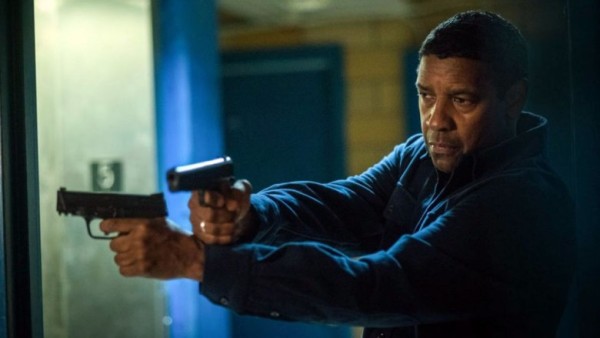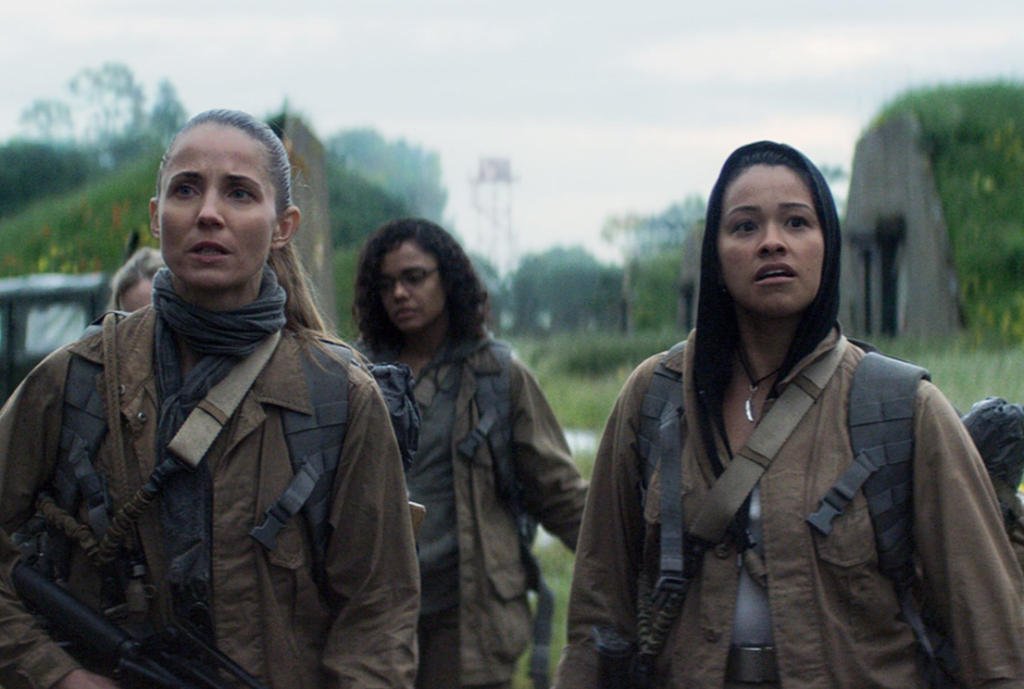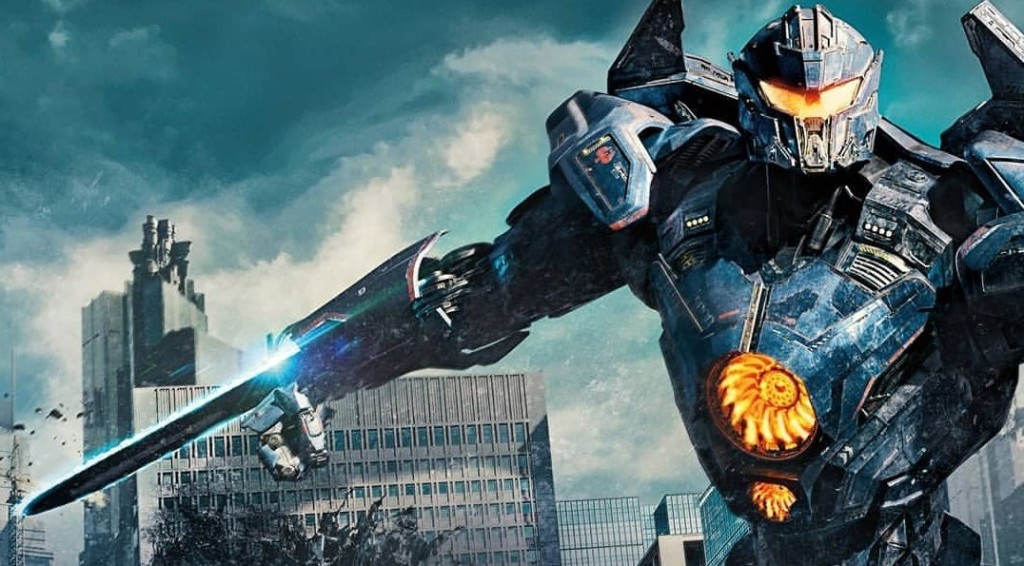It’s time for an analysis of the 2018 box office. I know there are some people who consider box office analysis to be pointless (“Just because a movie makes money doesn’t mean it’s good!”). But box office remains the single most reliant indicator of what audiences want in a movie. In a world where entertainment options are more widespread than at any point in history, the act of taking 3 hours out of your night to drive to a theater and pay to see a movie is as strong of a vote for a film as you can make. Okay, let’s jump in!
1. The Equalizer 2 (1 wk. $44 mil, $47 ww) and The First Purge (3 wks. $62 mil, $98 ww) – The success of these two films excites me because it proves that it’s still possible for a screenwriter, without the pre-backing of a studio, to generate a franchise. Yes, I know, The Equalizer is technically based on a TV show. But it was essentially a spec script. The Purge (which is now moving into the TV space!) is probably a better indicator of what’s possible. A high-concept genre premise built on a clever contained narrative that has now become a money-printer.
2. A Quiet Place (15 wks. $187 mil, $332 ww) – I could point out the clever horror premise for the umpteenth time as the reason this movie became the second biggest box office surprise of the year. But I want to use this opportunity to highlight how a MONSTER elevates the marketing potential of a movie exponentially. There’s a shot in the first trailer for A Quiet Place where we’re creeping up a stairway and, on the wall are these giant scrape marks. What could’ve possibly done that? The only way to find out is to buy a ticket.
3. Black Panther (22 wks. $700 mil, $1.346 bil) and A Wrinkle In Time (17 wks. $100 mil, $132 ww) – I can’t believe that Black Panther made more money at the domestic box office than Avengers: Infinity War. I mean think about that for a second. That’s an amazing accomplishment. Meanwhile, A Wrinkle In Time bombed. I grouped these two films together because they represent a shift in Hollywood to produce films that include more diversity. So why did one succeed and the other fail? Because Black Panther placed its focus on writing a good movie first. A Wrinkle in Time, meanwhile, built its entire project around its message of diversity. In regards to ANY ART, nobody cares about the message unless the product is good. What’s that famous studio head quote? “If you want to send a message, use Western Union?” Your primary job when you write a screenplay is to ENTERTAIN. Nothing else matters unless you get that right. Never ever forget that as a screenwriter.
4. Annihilation (8 wks. $32 mil, no ww distribution) – I loved this movie. But let’s be real. It tanked at the box office. Annihilation is a reminder that there’s no market for big budget thinking man’s sci-fi. If you’re a thinking man’s sci-fi writer, you need to write screenplays with severely limited budgets. Think Primer or Alex Garland’s previous film, Ex Machina. The only successful thinking man’s sci-fi movies of the last decade are Arrival and Inception, which is more than zero, but not by much.
5. Game Night (17 wks. $69 mil) and Blockers (10 wks. $60 mil) – Comedies are struggling big time. Game Night and Blockers are the two biggest comedies of the year at 69 and 60 million dollars respectively. To give you some perspective, the original Hangover made 277 million dollars. Hopefuls like Tag (6 wks. $53 mil, $70 ww), Life of the Party (10 wks. $52 mil, $65 ww), and I Feel Pretty (9 wks. $48 mil, $88 ww) all underperformed. It’s looking really bad for the comedy genre. The only lesson I can glean from this is that Game Night and Blockers were both ensembles. And Blockers built a story around a wide demographic (by following a group of adults and a group of teenagers, you pull in both those demos). But should we really be propping up Blockers as the current comedy model to aspire to? I hope not. In a recent article, I noted that female-driven comedy specs still sell. Looking at 2018’s comedy numbers, I don’t know how much longer that trend will last.
6. Ready Player One (15 wks. $137 mil, $582 ww) – I know this movie didn’t do well at the box office (at least in the US). But it’s still a huge win for the writer, Ernest Cline. The odds of writing anything (much less something original) that will obtain the services of Steven Spielberg, is the movie equivalent of winning the lottery. I bring this up to remind you that the only way to write big budget material and get it made these days is to write it as a novel first. And while, in the past, that may have sounded daunting, it’s quite easy to do today with self-publishing. Don’t forget that one of the biggest sci-fi movies of the decade, The Martian, started off as a self-published novel.
7. Solo (8 wks. $212 mil, $388 ww) and Skyscraper (1 wk. $51 mil, $186 ww) – There’s a false narrative out there that audiences will eat up anything Hollywood throws at them. The failure of Solo (and to a lesser extent, Skyscraper), a product of the most lucrative franchise of all time, proves that that isn’t the case. Amongst numerous issues, Solo’s biggest failure was that it was unoriginal. It didn’t take chances. It didn’t give us anything fresh. Ditto The Rock’s Skyscraper. Let this be a lesson to screenwriters that you have to take chances somewhere if you want your material to stand out. Here’s an exercise for you. When you come up with an idea for a screenplay, close your eyes and imagine exactly how an audience would expect that movie to go. Got it? Okay, now don’t give them that movie. You can give them some of that movie. You can give them some of those characters. But never give it to them exactly how they expect it.
8. Avengers: Infinity War (12 wks. $677 mil, $2.04 bil ww), Sicario: Day of the Soldado (3 wks. $47 mil, $65 ww), and Rampage (14 wks. $99 mil, $425 ww) – Both Rampage and Sicario were box office under-performers. A big reason for that is that their stories were giant messes. I’m going to throw a phrase at you and I want you to internalize it: “Too many moving parts.” The fastest way for a script to derail is for it to have too many moving parts. Too many characters. Too many storylines. Too many subplots. Too many motivations. It becomes hard for the audience to remember what’s going on and so they mentally check out. Rampage had one of the most discombobulated plots I’ve ever read for what amounted to a movie about monsters climbing up buildings. And Sicario split its storyline up in such an odd and unnecessary way that it destroyed what was, at is core, an awesome idea. If you must write a script with a lot of moving parts, do what Infinity War did. Create an overarching storyline with a motivation so giant and so clear that it’s impossible for the audience to get lost: Thanos is trying to destroy half the universe.
9. Pacific Rim Uprising (8 wks. $59 mil, $290 mil ww) – The Pacific Rim movies fascinate me because, on the surface, they appear to have the makings of a top level franchise. Yet their dumpy box office take suggests otherwise. I think what I’ve learned when it comes to Pacific Rim is that you get one strange attractor per movie. You get dinosaurs in Jurassic World. You get giant beasts in Godzilla and King Kong. You get machines that can transform into robots in Transformers. The moment you add two strange attractors, you position yourself as a schlocky B-movie. Giant robots AND giant monsters? Ehhhh… It reminds me of Cowboys vs. Aliens. You have to pick one or the other. It makes me wonder what this franchise would be like if it was just giant robots fighting each other. (note: there are examples of this working. But there are more examples of it NOT working)
10. Hotel Artemis (6 wks. $7 mil, $8 ww) and Tully (5 wks. $9 mil, $14 ww) – I liked both of these scripts. But they both bombed at the box office. Here’s the thing. If you’re not writing a script within an identifiable blueprint (guy with a gun, heist film, contained horror, teen comedy) audiences don’t know what to make of it. That’s the trickiest thing about originality – is that you must mine it from a pre-established paradigm. Hotel Artemis isn’t really a gangster film. It’s not a guy with a gun film. I see that trailer and I don’t see a blueprint I recognize. Likewise, I see the trailer for Tully and I see a tired mom who hires a nanny. Had the nanny been a psychopath who’s going to terrorize the main character, seduce her husband, and steal her child – THAT’S A BLUEPRINT I UNDERSTAND. But just a mom who needs rest? Who’s going out of their way to see that film? Write outside of pre-established paradigms at your own risk.
BONUS CUT
Red Sparrow (14 wks. $47 mil, $151 ww) – Never ever write a screenplay with a main character who has a Russian accent. It has never ever worked in the history of the box office. I know why they continue to make this mistake (A-listers attach themselves to these films because they want to show their acting ability by playing a character with a Russian accent) but studios need to take a stand moving forward.
Carson does feature screenplay consultations, TV Pilot Consultations, and logline consultations. Logline consultations go for $25 a piece or 5 for $75. You get a 1-10 rating, a 200-word evaluation, and a rewrite of the logline. If you’re interested in any sort of consultation package, e-mail Carsonreeves1@gmail.com with the subject line: CONSULTATION. Don’t start writing a script or sending a script out blind. Let Scriptshadow help you get it in shape first!






